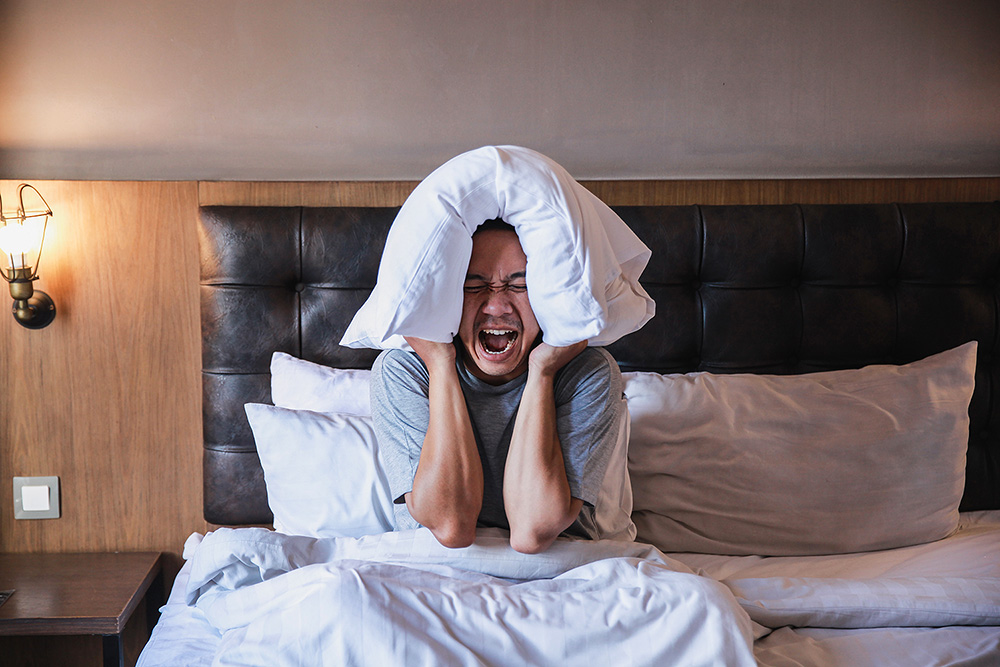The effect of insomnia on the health of the heart and soul may seem too great to contemplate. However, with reduced levels of it comes several other problems such as weight gain, impaired social skills, and difficulty thinking clearly. If you are concerned that you are not sleeping well these days or your partner is miserable when they sleep every night without fail, then this article could be what you have been looking for. It is vital to our wellbeing, and having too little of it is not suitable for our health.
Constant lack of sleeping can even lead to death in some cases, particularly for people suffering from severe depression. Recent research has shown that at least one out of every five adults in the United States will have insomnia at least once this year, while one out of three will experience temporary insomnia. Sleeping and Medicine Specialists in Fort Lauderdale are among several local medical specialists who believe that insomnia is a significant health issue that needs to be brought to the public’s attention.
Nighttime Low Oxygen Levels (nocturnal hypoxemia)
It is well known that low levels of oxygen in the cells are unhealthy and can lead to several health problems, including heart disease and daytime fatigue. With so many people who have insomnia these days, it is not surprising to learn that many have low oxygen levels in their blood. In most cases, this condition occurs overnight when we are sleeping.
This condition is called nocturnal hypoxemia, and it has several effects on the body. For example, insomnia causes our pupils to dilate, blood vessels contract, and blood pressure increases. Insomnia also causes us to become dizzy and our memory to decline. As this condition is related to oxygen, it will surprise many people to learn that the main problem occurs in the lungs rather than the heart or brain.
It is because insomnia means our bodies are not as efficient at absorbing oxygen. Our bodies need a certain oxygen level to function correctly, and this problem can have several other effects, including muscle weakness, heart palpitations, thirst, and panic attacks. Sleeping and Internal Medicine Specialists have found that several people who believe they are sleep deprived are suffering from a condition known as nocturnal hypoxemia.
Causes of Nocturnal Hypoxemia
There are two leading causes of nocturnal hypoxemia:
1. Sleeping apnea is a condition where the sleeper’s breathing stops for some time. For example, if you are sleeping with your mouth open, you may end up holding your breath for several seconds without realizing it. It can prevent the amount of oxygen from reaching the body’s cells and therefore cause low oxygen levels in our blood throughout the night.
2. The other leading cause is sleeping deprivation. While most people think that sleeping is alarming for the body, this is not the case. With constant low levels of oxygen in the blood, the body may need to adjust to maintain a healthy lifestyle. If we do not have enough of it, we will try to compensate by changing our lifestyle or behavior.
Effects of Nocturnal Hypoxemia
The adverse effects of having low oxygen levels in the blood are many. Here are just a few:
1. Sleeping apnea can increase the chances of heart attacks, stroke, diabetes, and other forms of heart disease. Low oxygen levels in the blood can cause our blood vessels to become weak and open up a condition known as arteriosclerosis.
2. With constant low levels of oxygen in the blood, we will begin to feel tired at the end of each day. The symptoms are no different from those that a person would experience from insomnia on a whole night’s sleep.
3. Insomnia can lead to obesity as the body will make up for the lack of oxygen by burning more calories. However, this will cause more fat to accumulate in the abdomen, while the rest becomes the same weight or lighter.
4. Insomnia can also cause problems with our social life and interpersonal relationships. Although there is no scientific proof, many people have told us that they have noticed an improvement in their relationships since they began sleeping better.
5. It can also lead to anxiety, depression, headaches, and irritability.
6. With increased stress levels in our lives, insomnia will become even more severe.
7. It can also lead to several other health problems, including hot flashes in menopausal women, poor immunity, and a weakened immune system that becomes less effective as we get older.
8. With insomnia, the body’s natural defenses will become less effective.
9. It can also lead to problems with our ability to concentrate and think clearly.
10. Insomnia can cause many other problems such as memory loss, difficulty learning new things, or difficulty finding your way around town. Lack of oxygen in the brain may contribute to problems with our cognitive abilities by decreasing the number of synapses in the connections between neurons.
How to Avoid Nocturnal Hypoxemia
To avoid nocturnal hypoxemia, you will need to take simple steps to improve your sleeping habits. First of all, consider eliminating things like caffeine and nicotine from your diet, as these substances can keep you awake at night. Sleeping and Internal Medicine Specialists in Fort Lauderdale would also suggest that you pay attention to the quality of your mattress and pillows. Using a good quality mattress and pillow can make a massive difference to the quality of sleeping time.
Ensure that you are sleeping for at least eight hours every night and avoid stimulants such as chocolate, caffeine, alcohol, and nicotine. Make an evening workout a regular part of your life and avoid televisions or computers that emit blue light before you go to bed. Remember that late-night TV and computer games are not for you if you want to stay healthy and be sleeping throughout the night.
If you believe that you have insomnia, talk to your friends and family. Sleeping and Internal Medicine Specialists in Fort Lauderdale suggest that our friends and family may be able to notice the effects of insomnia on our behavior before we even know it. So if you find yourself feeling fatigued all the time or having problems with your memory, pay attention to the complaints from others as they may be able to help you out. They ensure they have a doctor available to help you.




